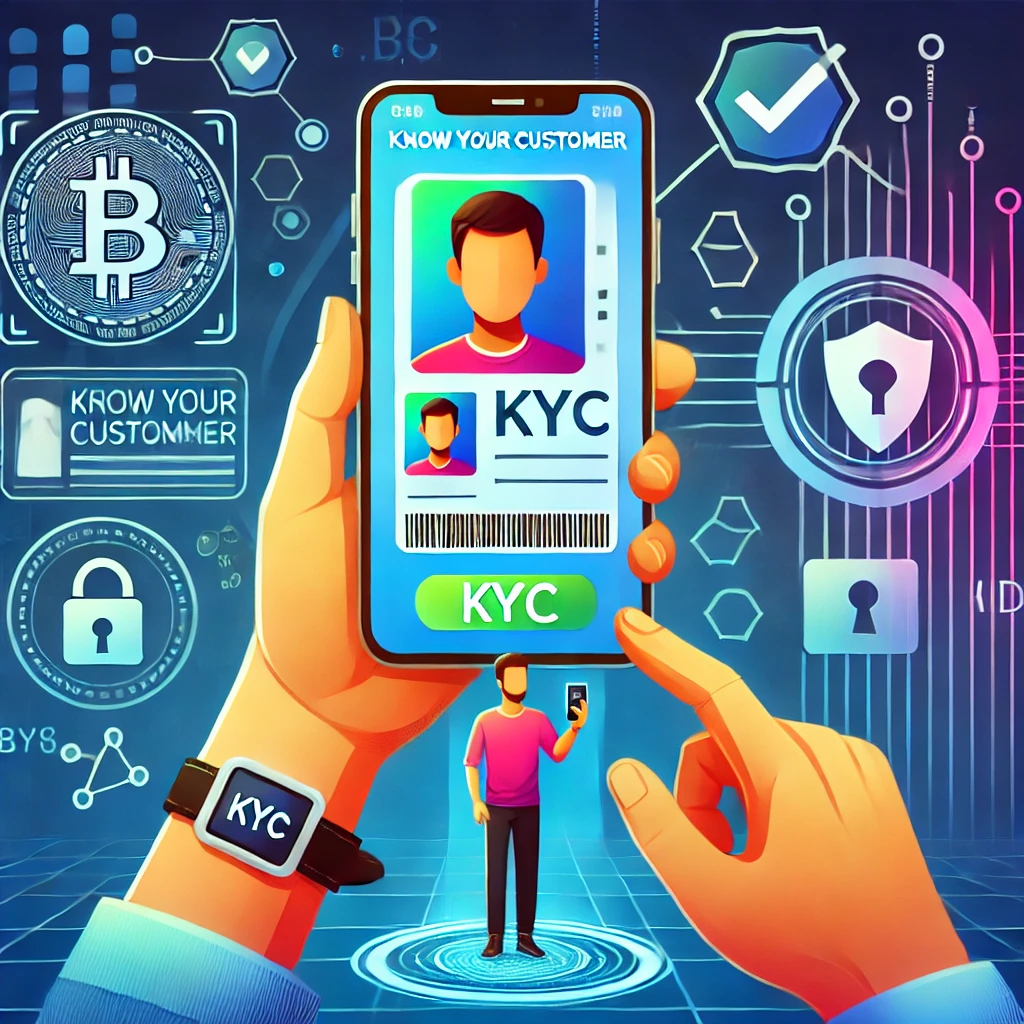What is KYC (Know Your Customer) Is It Essential for Crypto?

In the modern financial landscape—especially in the rapidly evolving world of crypto—KYC, or Know Your Customer, has become a crucial component of onboarding and security processes. While it may seem like just another formality, KYC plays a significant role in ensuring trust, legality, and safety across financial platforms.
But what exactly is KYC? How does it work? And is it truly necessary in a decentralized ecosystem like crypto? Let’s break it down.
⸻
What is KYC (Know Your Customer)
KYC (Know Your Customer) refers to the process companies use to identify and verify the identity of their users or clients. This procedure is typically required by law to prevent illicit activities like money laundering, identity fraud, and terrorism financing.
In the crypto world, KYC is commonly implemented by:
• Centralized crypto exchanges (CEX)
• Custodial DeFi platforms
• Wallet providers
• Token presale projects
• Launchpads and IDOs
⸻
The Purpose of KYC in Crypto
1. Preventing Money Laundering (AML – Anti-Money Laundering)
KYC helps platforms detect suspicious activity and restrict the flow of illegal funds through crypto.
2. Fighting Terrorism Financing
Knowing a user’s identity helps prevent malicious actors from using platforms for unlawful funding.
3. Enhancing Platform Security
KYC makes it harder for scammers and bots to abuse systems through fake identities or multiple accounts.
4. Complying with Global Regulations
Major jurisdictions like the U.S., EU, Japan, and others mandate KYC as a prerequisite for legal operation.
⸻
KYC Process: Step-by-Step
Though it may vary slightly by platform, the general KYC flow looks like this:
1. Account Registration
User signs up with an email and password.
2. Basic Personal Information
Required fields often include:
• Full legal name
• Date of birth
• Residential address
• Country of citizenship
3. Identity Document Upload
Accepted documents include:
• Passport
• National ID card
• Driver’s license (varies by country)
4. Proof of Address (optional)
May include:
• Utility bills
• Bank statements
• Lease agreements
5. Selfie or Live Video
To verify the person submitting documents is the document owner.
6. Review and Approval
Verification times range from minutes to several days depending on volume and automation.
⸻
Real-World Examples of KYC Requirements
| Platform | KYC Required? | Features Without KYC |
| Binance | Yes | Extremely limited (read-only) |
| Coinbase | Yes | No access to buy/sell/trade |
| Kraken | Yes | Withdrawals are restricted |
| KuCoin | Partially | Limited withdrawal and features |
| OKX | Yes | Full KYC for advanced usage |
| Uniswap (DEX) | No | Fully accessible without KYC |
| PancakeSwap (DEX) | No | No personal info required |
⸻
Pros and Cons of KYC
Pros:
• Increases security and trust
• Helps platforms remain legally compliant
• Blocks illegal activities
• Encourages institutional adoption
Cons:
• Compromises user privacy
• Risks data leaks and breaches
• Creates barriers to entry
• Goes against crypto’s decentralization ethos
⸻
Global KYC Regulations
Several global initiatives and laws enforce KYC, such as:
• FATF (Financial Action Task Force): Sets international AML/KYC standards.
• MiCA (Markets in Crypto-Assets – EU): Mandatory KYC for service providers starting 2024.
• FinCEN & SEC (USA): Enforce strict compliance on crypto companies.
• Other regions: Japan, South Korea, Australia, and Canada have similar laws in place.
⸻
Tips to Do KYC Safely
1. Use reputable platforms only – Make sure the site is well-known and uses data encryption.
2. Never send documents via regular email – Always upload them through official secure portals.
3. Read the privacy policy – Know how your data will be stored and used.
4. Enable 2FA – Adds extra security to your account.
⸻
The Future of KYC in Crypto
As regulations tighten globally, KYC will likely become unavoidable for most centralized services. However, new technologies offer hope for a more private and user-friendly KYC experience:
• Self-Sovereign Identity (SSI)
Users control their identity and share only what’s necessary via blockchain.
• One-Time KYC
Verified once, used across multiple platforms via secure identity bridges.
These solutions aim to balance regulation, trust, and privacy, keeping crypto safe while preserving its decentralized ideals.
⸻
Conclusion
KYC is a crucial part of crypto’s mainstream evolution. While it may clash with the early ideals of anonymity and decentralization, it provides a foundation for legality, protection, and institutional participation.
As a user, it’s important to understand the why, how, and where of KYC to make better choices when interacting with crypto platforms.
Visit Cryptoplagiat.com for the latest news and analysis on digital finance and cryptocurrency.